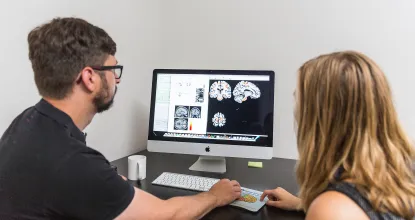
Laboratory Research
The Department of Psychological Science has a variety of laboratories that you can conduct research in. For more information on how to get involved, please contact the director of the specific laboratory.
CABIN (Cognitive x Affective Behavior Integrative Neuroscience) Lab
Contact Dr. Carlson or Dr. Fang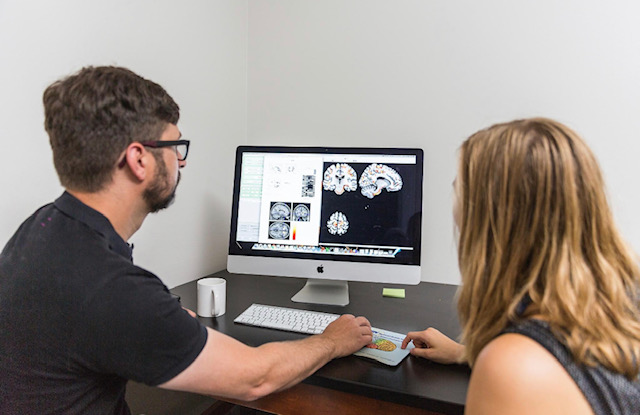
Weston 1205
Dr. Carlson and Dr. Fang are the Co-Directors of the Cognitive × Affective Behavior & Integrative Neuroscience (CABIN) laboratory. As the name suggests, the CABIN lab studies affective processing—especially aspects of affective processing that concern its interaction with cognition—integrating across behavioral and brain imaging measures (e.g., EEG/ERP, NIRS, and MRI). At any given time, the lab contains approximately 20 undergraduate and graduate students. Examples of recently completed or ongoing CABIN lab research projects include:
-
Climate change psychology
-
Neural correlates of climate change anxiety and pro-environmentalism
-
Neural correlates of attention and engagement with climate change information
-
Emotion regulation processes associated with anxiety and depression
-
Neural correlates of affective biases in cognitive processing
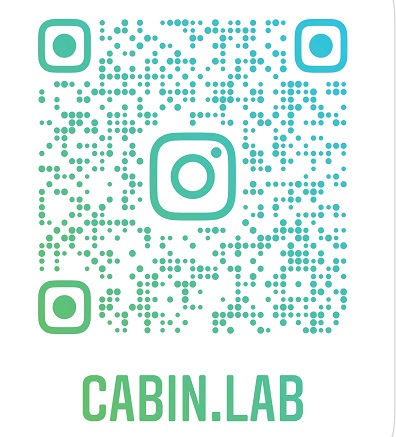
Students in the CABIN lab often contribute to work that is presented at national conferences or published in peer-reviewed journals and book chapters.
Neuropsychopharmacology Lab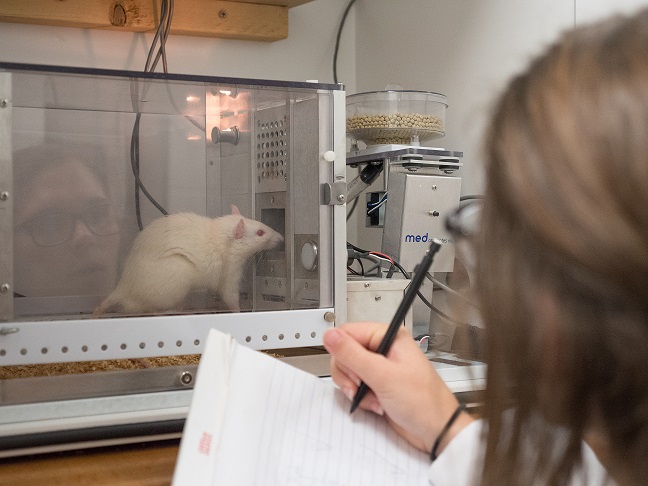
Contact Dr. Prus
Weston 2305
Dr. Prus is the Director of the Neuropsychopharmacology laboratory. His research is dedicated to analyzing the neurological and behavioral effects of psychoactive drugs, particularly those used to treat illness such as depression, anxiety, and schizophrenia.
Research in the Neuropsychopharmacology lab often becomes published in peer-reviewed journals or is presented at national conferences.
Toegel Laboratories
Contact Dr. Cory Toegel or Dr. Forrest Toegel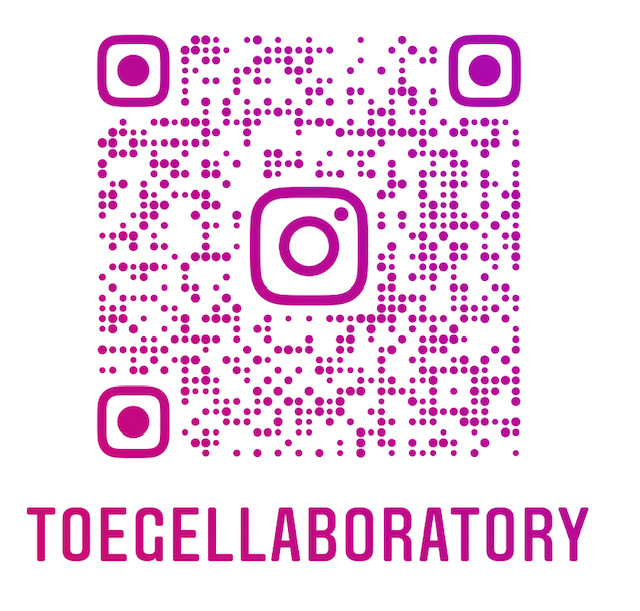
Visit the Lab Website or Apply Here to become an undergraduate research assistant
Weston 1110
The Toegel Laboratory conducts research and mentors students in Psychology and Behavior Analysis. Our goal is to contribute to the science of behavior that is used to improve lives and make lasting behavior change. Our research focuses on understanding basic and complex behavioral processes, evaluating and refining laboratory models, and evaluating clinical applications of behavioral principles. We aim to produce published research and provide high-quality research training in Psychology and Behavior Analysis.
The research interests of the Toegel Laboratory include (but are not limited to):
- Self-control and impulsivity, Choice

- Substance abuse and behavioral relapse
- Disruptions in operant behavior; Incentive shifts; Aversive control
- Behavioral pharmacology and neuromodulation
- Community health initiatives to combat substance abuse and HIV, promote employment, and reduce poverty
- Challenging behavior interventions and autism/developmental disabilities
- Caregiver and therapist training methods
- Computer-based training
- Refining experimental research methods and technology
To learn more about the Toegel Lab, click here to go to the Lab Website
LaCrosse Neuroscience Lab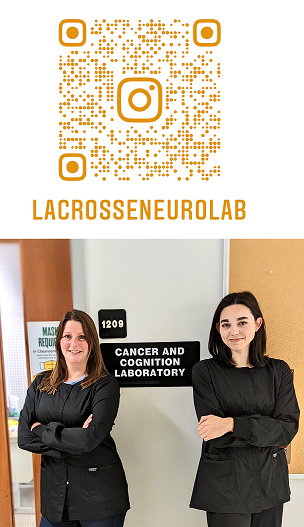
Contact Dr. Amber LaCrosse
WSTN 1209
Currently, the LaCrosse Laboratory uses animal and human models to:
- determine the effects of cancer and cancer treatments on cognitive function
- determine the effects of novel and popularized compounds (e.g., cannabidiol) on anxiety and other disorders using behavioral tasks
- determine the effects of environmental enrichment and stimulation on complex cognitive task performance
- assess the associations between gene mutations and psychological disorders (e.g., ADHD)
- assess the associations between gene expression levels and chemotherapy induced cognitive dysfunction
To learn more about the Neuroscience Lab, click here to go to the Lab Website
Social-Cognitive Psychology Lab
Contact Dr. Jon Barch
Weston 1304
Research in this lab engages undergraduate and graduate student research assistants in two focus areas:
- The ACORN Project (Autonomy, Competence, Optimism, Relatedness, Nature)
- Experimental investigation of social contexts that facilitate or thwart people’s autonomy, competence, optimism, relatedness, and nature experiences.
- Expanding social-cognitive neuroscience research to further explain the neural mechanisms behind the situational enhancement or undermining of intrinsic motivation.
- Applied social and personality research to further our understanding of how the ACORN target constructs affect wellness and optimal performance in people’s lives.
- Assess interventions aimed at enhancing psychological wellness by facilitating individuals’ autonomy, competence, optimism, relatedness, and nature experiences.
2. Implicit Race & Gender Bias
- Improving the measurement of both implicit and explicit social group bias.
- Evaluating interventions aimed at reducing implicit bias through long-term counter stereotypic content exposure.
- Increasing public awareness and understanding of implicit cognition and applied issues of unconscious bias.

Behavior Education Assessment and Research (BEAR) Center
Applied Behavior Analysis Clinic and Research Facility
Contact Dr. Jacob Daar or Dr. Cory Toegel
1738 Presque Isle Ave, Marquette, MI 49855
The Behavior Education Assessment and Research (BEAR) Center is a university clinic and research facility overseen by the Department of Psychological Science. The BEAR Center conducts clinical research in Applied Behavior Analysis.
The BEAR Center seeks to provide behavior and learning support for multiple members of the community, including children, adolescents, and adults with intellectual/developmental disabilities and/or traumatic brain injury. In addition, family and school support is offered for children with difficult or problematic behaviors, and assistance to organizations is provided to increase employee performance and productivity.
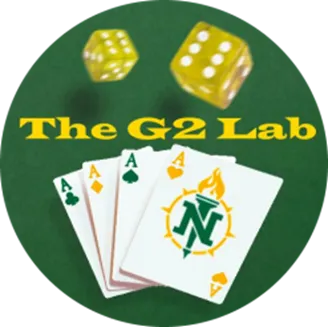
Gambling and Gaming Lab
The Gambling and Gaming lab conducts research on gambling, impulsivity, and risk-taking behaviors.
Weston 1117
